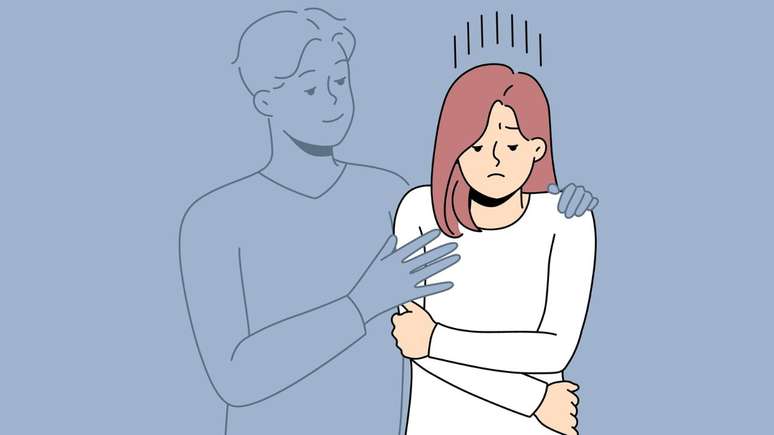The “Listen to our voices” campaign aims to demystify enabling terms that reinforce prejudice; knowing how to act
Chances are you’ve been named or called someone with adjectives associated with mental health. Stop what you are doing and consider if you have ever used these words in a derogatory way: crazy, out of your mind, schizophrenic, imbecile, retarded, demented, maniac.
These terms are used daily in different contexts, both to curse someone and to define and justify a person’s conduct. It happens that all reinforce stereotypes and encourage psychophobia, that is, prejudice against those who have a mental illness. At the end of this article, you can check how to act in these situations.
Thinking of the negative effects of this communication, the Listen to Our Voices campaign, promoted by Janssen, a pharmaceutical company of Johnson & Johnson, in collaboration with the Schizophrenia Program (PROESQ) of the Federal University of Sao Paulo (Unifesp), the Associação Mãos de Mães de People with Schizophrenia (AMME), Associação Crônicos do Dia a Dia (CDD) and Gaucho Association of Schizophrenic Patients and Families (Agafape), launch an anti-capacitator dictionary on mental health.
The main symptoms and signs of schizophrenia are: delusions, hallucinations, behavioral changes, reduced affection with people, social isolation and difficulties in starting and maintaining activities.
“Lack of knowledge about the disease and prejudice can have a direct impact on the life of the schizophrenic person and on his family. Prejudice is one of the main impediments for the patient to seek treatment”, stresses psychiatrist Rodrigo Bressan, professor at Unifesp . The anti-capacitalist dictionary aims to overcome stigma.
For the treatment of schizophrenia, the person must seek multidisciplinary help, with the support of a psychiatrist, psychologist, in addition to the support network. “When schizophrenia is not adequately controlled with drugs, the patient can have psychotic fits, behavioral changes and possibly hospitalizations. With each psychotic episode there is a progression of the disease and a worsening of the response to the drugs, as well as a reduction of the brain. But, if treated correctly and continuously, the symptoms stabilize and the patient can lead an autonomous and productive life with quality of life, “says Bressan.
The material is curated by the listening words of families, schizophrenic patients and their doctors about the terms and expressions they feel and enhance the prejudice. The material can be viewed in full, free of charge, on the Janssen website.
This is the fourth year of the campaign Hear our voices. “Neuroscience is directly linked to Janssen’s story. In the 1950s, the founder of the company, Paul Janssen, was the one who created the first antipsychotic that enabled the treatment of patients at home. And, ever since, we have been. remained committed to seeking care and bringing knowledge that helps mental health patients have a better quality of life, ”said Luciana Sobral, the company’s director of communications and public affairs in Brazil.
Check out some capable expressions
Check out some examples from the anti-capacitalist dictionary published in the campaign Hear our voices:
‘out of mind’
Many people use the word “outbreak” to describe unexpected or disproportionate changes in behavior in the face of daily events. However, unlike what happens in specific everyday situations, such as a tantrum in the middle of a fight, the psychotic break is part of the set of symptoms that characterize the diagnosis of schizophrenia. The person diagnosed may experience hallucinations, delusions, anxiety, aggression, disorganized thoughts or behavior, and difficulty communicating.
People with schizophrenia, when their symptoms are not controlled by treatment, can have outbreaks. Calling someone “out of their minds” stigmatizes those living with the condition.
Change to: “Out of control”, “You are impulsive”, “You are out of control”
“You don’t look like a schizophrenic”
Symptoms of affective dulling, that is, difficulty in showing emotions and feelings, can change the facial expression of people with schizophrenia, but they do not cause changes in physiognomy and the traits themselves.
When the individual is on regular treatment and the symptoms are controlled, it is not possible to notice that he is living with this psychiatric disorder. So when someone shares with you that they have been diagnosed with this condition, avoid this type of comment.
Change to: in fact, there is no substitution for this expression. Moreover, as already mentioned, schizophrenia has no “face”.
‘You are crazy’
The term moody comes from the Latin word lunaticus, which originally referred mainly to epilepsy or insanity, such as diseases that were thought to be caused by the moon. Today, this association can reduce the medical character of neurological and psychiatric disorders, giving them a mystical air, which feeds myths and discourages specialized follow-up.
Using this expression, the interlocutor can imply that the person is dangerous, unpredictable and has no control over their actions. Words like “manic” and “psychotic” should also be avoided.
Change to: there is no substitution for this expression. So it’s best not to use it.
Source: Terra
Benjamin Smith is a fashion journalist and author at Gossipify, known for his coverage of the latest fashion trends and industry insights. He writes about clothing, shoes, accessories, and runway shows, providing in-depth analysis and unique perspectives. He’s respected for his ability to spot emerging designers and trends, and for providing practical fashion advice to readers.








